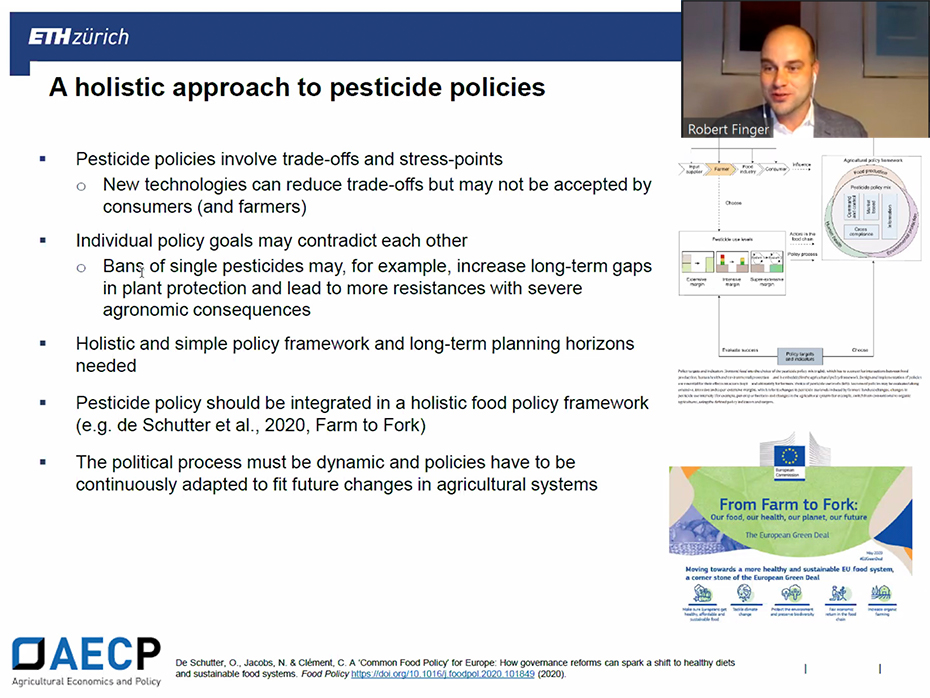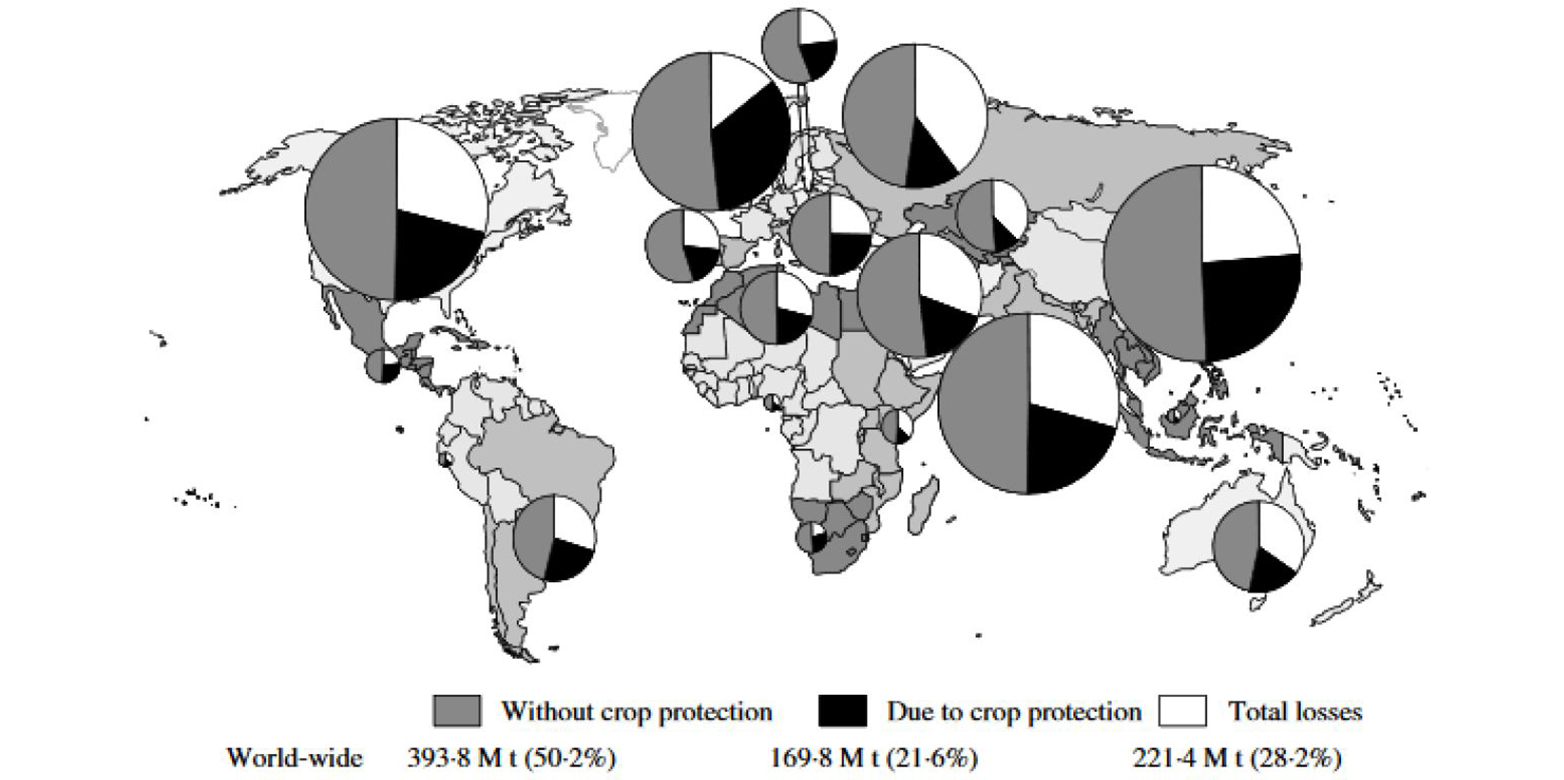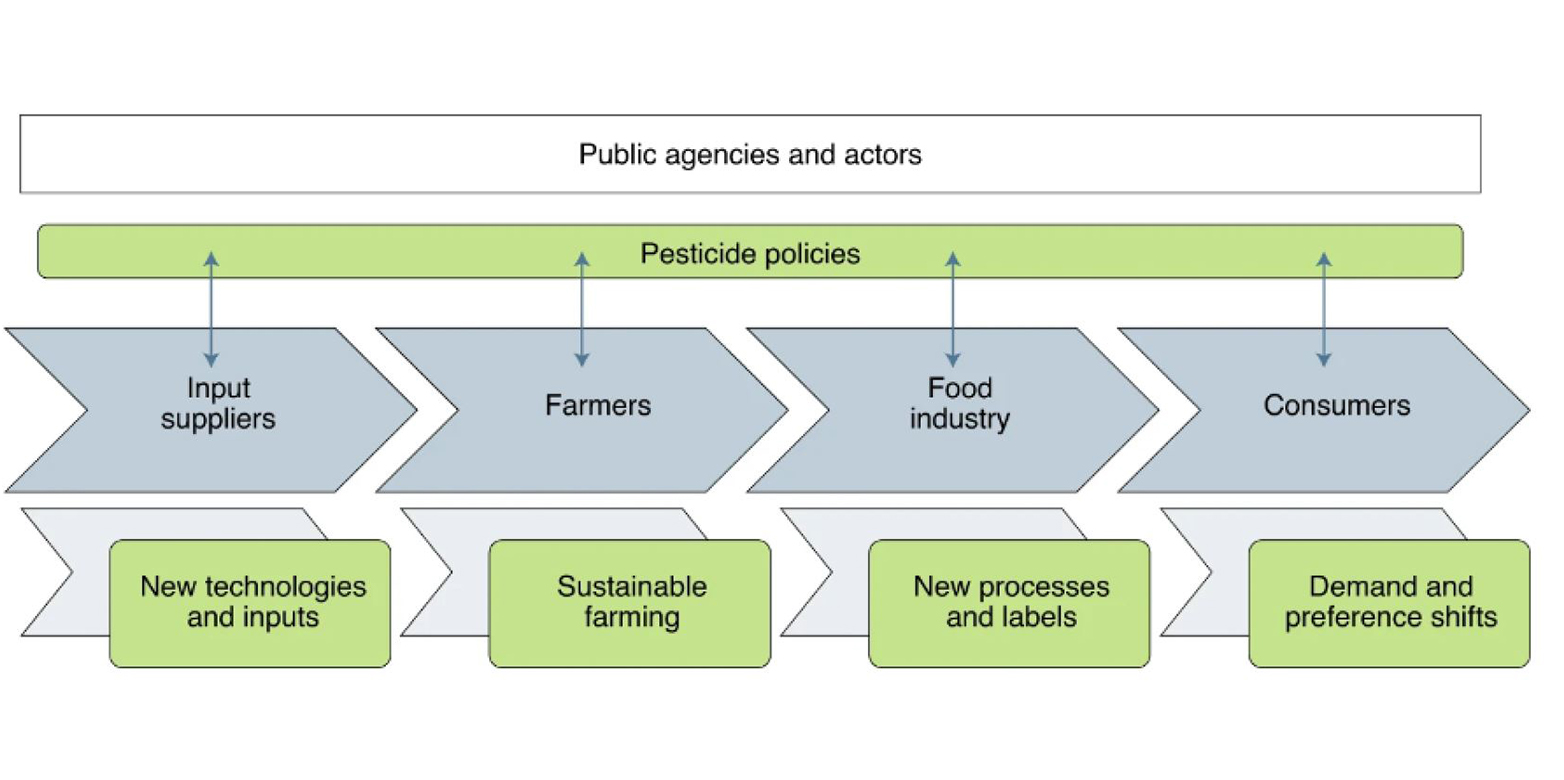Pathways for advancing pesticides policies
Robert Finger is a Professor of Agricultural Economics and Policy at ETH Zurich. On October 27, 2020 he gave a presentation on pesticide policies. More specifically, he introduced the result of a collective research project on designing a holistic framework to advance pesticide policies. The presentation was structured as follows: He firstly defined the broader problem of pest management and the complexity of establishing pesticide policies, he then introduced and exemplified a 10-step policy framework for advancing pesticide regulations. Finally, he discussed a Swiss case study of pesticide-free wheat production.
by Marion Meyers & Jasmin Krähenbühl

In the past 60 years, pest management advanced massively and became critical for food security. Today, it would be difficult to feed the world’s population without pesticides. Global wheat production exemplifies this fact: more than 20% of the total wheat production relies on crop protection measures. However, the demand for pesticides is still increasing. The three main reasons are the (1) increasing demand for high quality food, (2) growing world population and (3) global warming - more people have to be fed while yields decline due to climate change.
Despite their integral part in the world’s agricultural system, pesticides are proven to have detrimental effects on human health and the environment. In Switzerland, more than one million inhabitants have pesticides in their drinking water. Moreover, the majority of creeks exceed the legal pesticide pollution thresholds. In the face of such alarming circumstances, many European countries designed ambitious National Action Plans to reduce the risks and impacts of pesticide use. However, there is little evidence that these policies have led to the desired reduction in these negative impacts. Due to a lack of data, it is difficult to assess the effectiveness of pesticide risk policies.
As a consequence, the societal concern about the negative effects of pesticides is rising. Finger exemplified this trend in one of his research projects where they showed the increasing search for pesticide-related terms on social media in the last years. More and more citizens express their discontent with current pesticide policies. In Switzerland, two popular initiatives on pesticide use are up for vote in winter 2020. Both call for less pesticide use to protect the environment and human health.

A meaningful trade-off between food security, human health and the environment is a delicate balancing act. For Finger, it is clear that the risks from agricultural pesticide use have to be reduced. With his research group, he developed a framework that aims to address various actors along the supply chain. Finger is convinced that only a holistic and interdisciplinary approach to pesticide policies can lead to sustainable solutions.
The holistic framework they developed consists of ten key steps, regrouped into four main themes: (1) policy indicators, targets and design, (2) farmer and consumer actions, (3) sustainable plant protection and (4) efficient and dynamic pesticide policy portfolio. During his presentation, Finger explained in more detail three out of these ten key steps. Under the first theme, he highlighted the importance of developing a tangible and transparent pesticide risk indicator. Indeed, indicators currently used, such as the reduction in tons of pesticide applied, don’t always correspond with the environmental and health risks. Under the second theme, he explained the importance of understanding that farmers have heterogenous behavioral patterns and therefore respond differently to the same policies. Hence, an important aspect of the framework is to acknowledge this behavior and adapt the policies accordingly. Finally, under the third theme, Finger argued that smart farming methods could be used to improve the sustainability aspect of agriculture. This can for example include the use of drones to apply pesticide in a more precise way, or the leverage of new information communication technology to help farmers better manage their fields.

Overall, Finger argues that if tackled all-together, these 10- steps can create a holistic and interdisciplinary set of policies to address the complex problem of pest management and pesticides regulation.
The retailer Migros and the association IP-SUISSE have been running a program for pesticide-reduced production for 30 years. In this program, only herbicide and seat treatment are allowed, and the participating farmers receive a price mark-up and direct payments. Thanks to this public-private partnership, 50% of Swiss wheat is produced with less pesticide input. Now, Migros and IP-SUISSE aim to take the next step and achieve a pesticide-free wheat production in 2023. Finger and his research group support this transition. They performed an ex-post assessment to identify the determinants, challenges and barriers to the uptake of this pesticide-free wheat production program.
On the basis of a survey amongst IP-SUISSE farmers, they explained adoption or planned adoption by a diverse set of explanatory variables. The results showed that 58% of farmers adopted or intend to adopt the program while 39% have no intention of adoption. Interestingly, the adoption intention is mainly driven by the farmer’s expectations of the program. For example, if farmers understand the environmental benefits of reducing pesticide use, they are more eager to take part in the program. In contrast, perceived risks of high machinery investments and production losses lower adoption intentions. Furthermore, the prior farming system and the required adjustment costs influence farmer’s decisions. These findings show the importance of implementing efficient communicationpathways to the farmers. It highlights the necessity of providing them with information and knowledge about the benefits, the risks, the costs etc. of pesticide use and of the transitions to a pesticide-free agriculture. In brief, these findings show that financial incentives are not the only way to incentivize farmers to take part in the program but that adjusting their expectations might well be a more efficient solution.
Robert Finger introduced the complex problem of pesticides regulations. He presented a holistic approach to pesticide policies that aims to address the various actors involved along the supply chain. By taking into account these different actors and the heterogeneity of their behavior, this framework should in turn lead to a more comprehensive and sustainable way to reduce environmental and health risks related to the use of pesticides.
To get a broadened sense of the ISTP and our topics of interest and past seminars visit our Colloquia page.